Indigenous Governance Database
Land/Jurisdiction
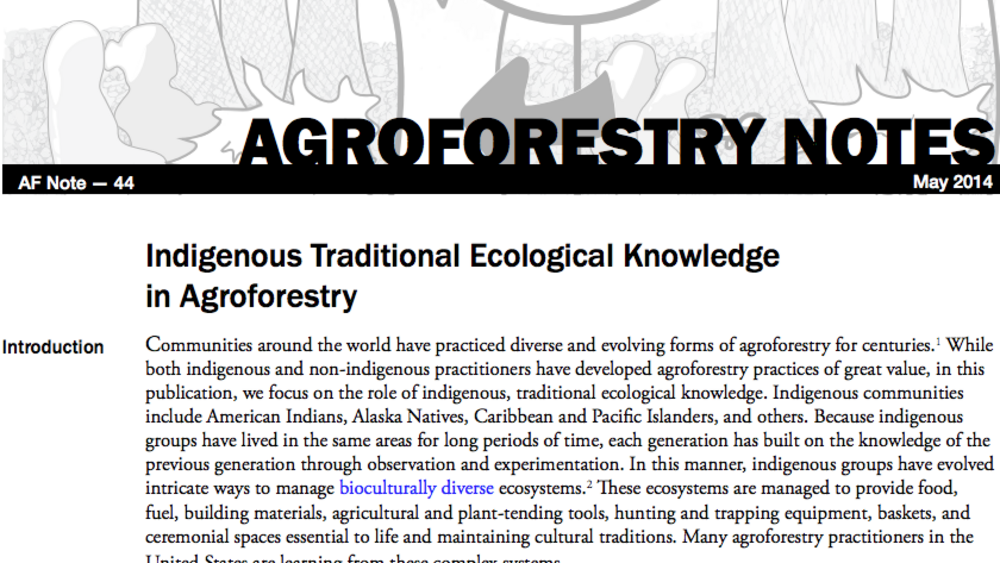
Indigenous Traditional Ecological Knowledge in Agroforestry
Communities around the world have practiced diverse and evolving forms of agroforestry for centuries. While both Indigenous and non-Indigenous practitioners have developed agroforestry practices of great value, in this publication, we focus on the role of Indigenous, traditional ecological…
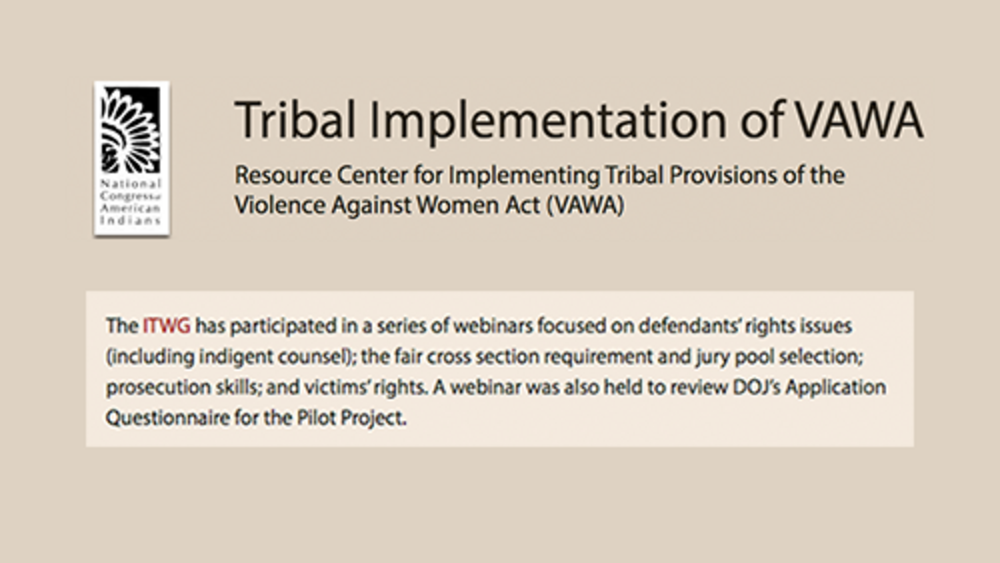
Resource Center for Implementing Tribal Provisions of the Violence Against Women Act (VAWA): Webinars
The Intertribal Technical-Assistance Working Group on Special Domestic Violence Criminal Jurisdiction (ITWG) has participated in a series of webinars focused on defendants' rights issues (including indigent counsel); the fair cross section requirement and jury pool selection; prosecution skills;…
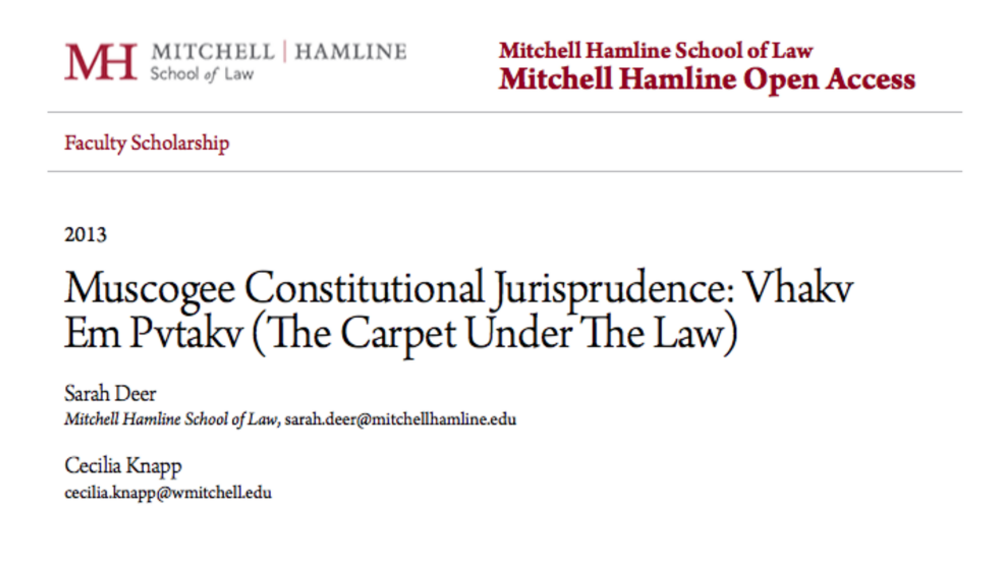
Muscogee Constitutional Jurisprudence: Vhakv Em Pvtakv (The Carpet Under The Law)
In 1974, a group of Mvskoke citizens from Oklahoma sued the federal government in federal court. Hanging in the balance was the future of Mvskoke self-determination. The plaintiffs insisted that their 1867 Constitution remained in full effect, and that they still governed themselves pursuant to it…
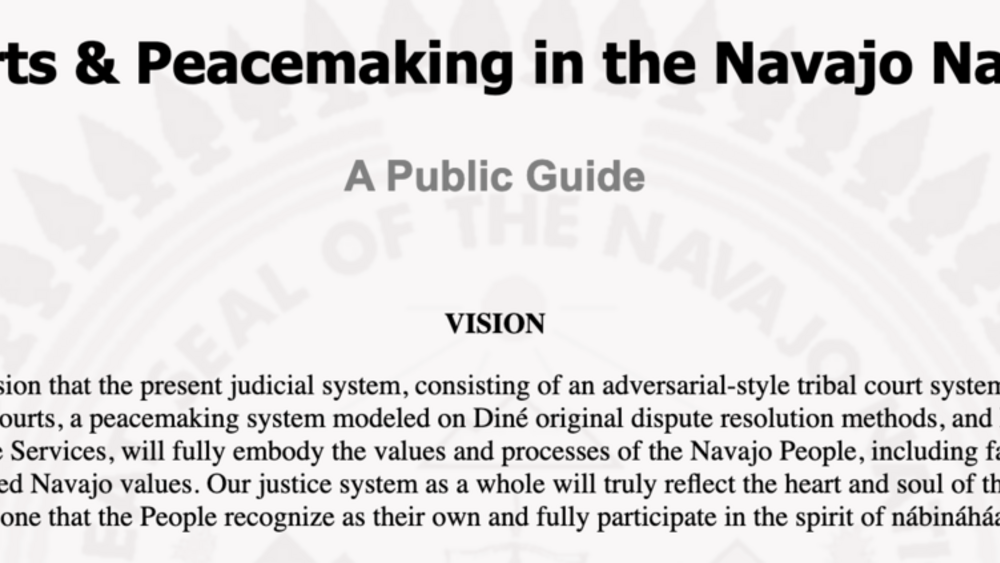
Courts & Peacemaking in the Navajo Nation: A Public Guide
The history of our judiciary begins in our ancient history. According to the Journey Narrative, the People journeyed through four worlds and, in the course of their journey, came upon many problems both natural and caused by the People, which had to be resolved before the journey…
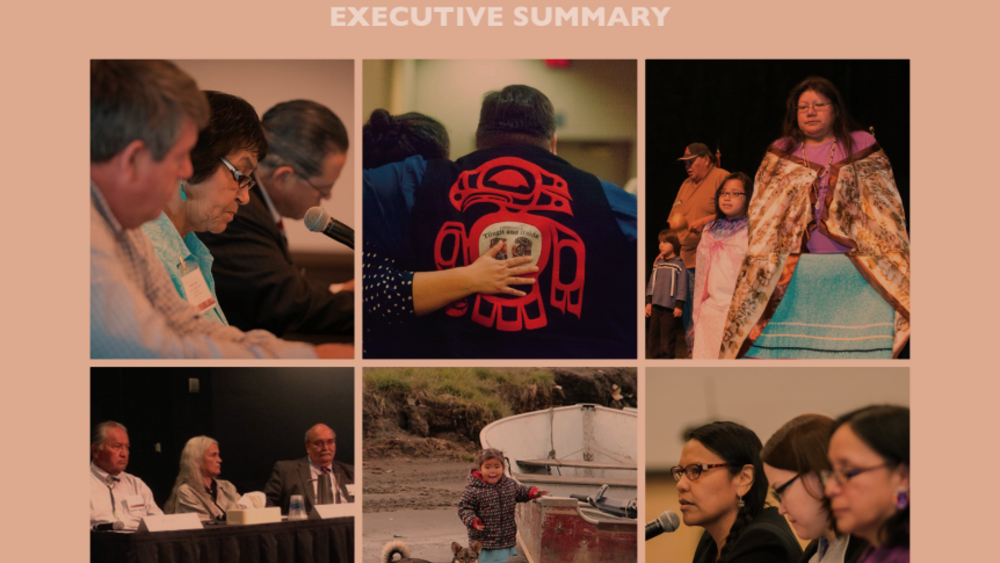
Attorney General's Advisory Committee on American Indian/Alaska Native Children Exposed to Violence: Ending Violence so Children Can Thrive
This report was created as part of the Defending Childhood Initiative created by Attorney General Eric H. Holder, Jr. This initiative strives to harness resources from across the Department of Justice to: Prevent children's exposure to violence. Mitigate the negative impact of children's…

Diné Food Sovereignty: A Report on the Navajo Nation Food System and the Case to Rebuild a Self Sufficient Food System for the Diné People
In the most basic analysis, food is an essential component of human life. Food nourishes and sustains us; without adequate access to food, human beings cannot survive. As a basic necessity for life, food is interconnected with every sector of life and wellbeing including health (physical, mental,…
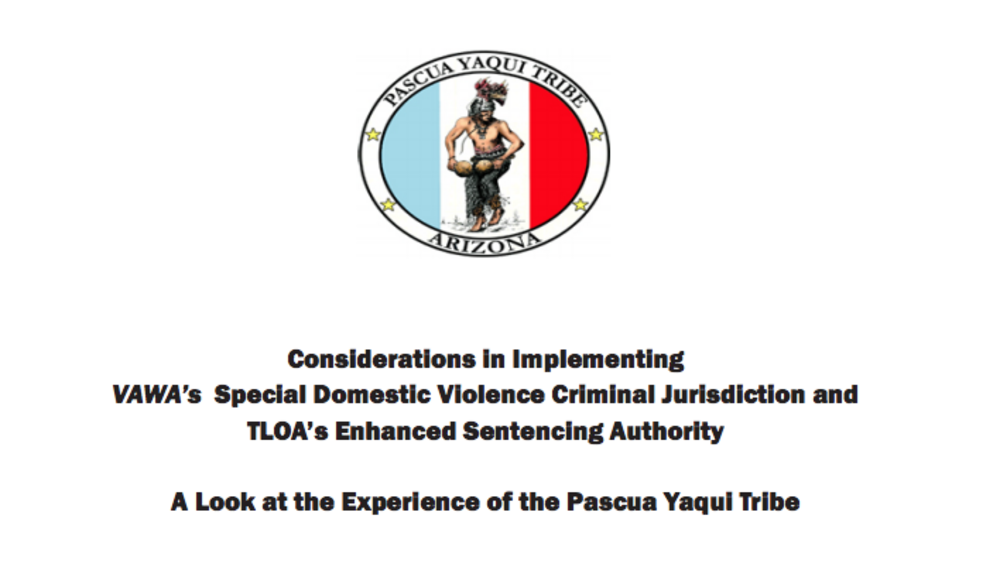
Considerations in Implementing VAWA's Special Domestic Violence Criminal Jurisdiction and TLOA's Enhanced Sentencing Authority: A Look at the Experience of the Pascua Yaqui Tribe
On February 20, 2014, pursuant to the Violence Against Women Reauthorization Act of 2013 (VAWA 2013), the Pascua Yaqui Tribe was one of only three Tribes across the United States to begin exercising Special Domestic Violence Criminal Jurisdiction (SDVCJ) over non-Indian perpetrators of domestic…

On Improving Tribal-Corporate Relations In The Mining Sector: A White Paper on Strategies for Both Sides of the Table
Mining everywhere is inherently controversial. By its very nature, it poses hard economic, environmental, and social tradeoffs. Depending on the nature of the resource and its location, to greater or lesser degrees, the mining process necessarily disturbs environments, alters landscapes, and…
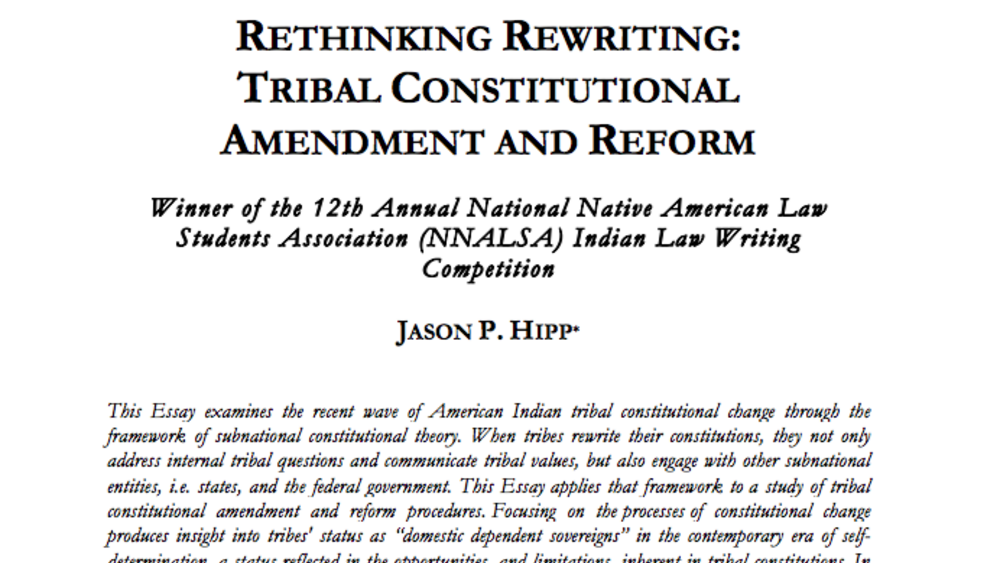
Rethinking Rewriting: Tribal Constitutional Amendment and Reform
This essay examines the recent wave of American Indian tribal constitutional change through the framework of subnational constitutional theory. When tribes rewrite their constitutions, they not only address internal tribal questions and communicate tribal values, but also engage with other…
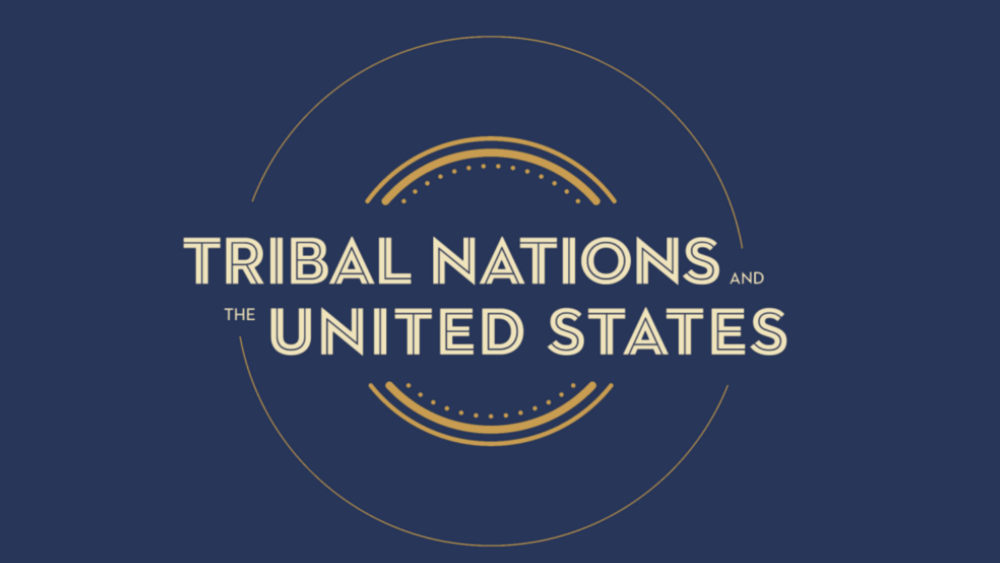
Tribal Nations and the United States: An Introduction
Tens of millions of Indigenous peoples inhabited North America, and governed their complex societies, long before European governments sent explorers to seize lands and resources from the continent and its inhabitants. These foreign European governments interacted with tribes in diplomacy, commerce…
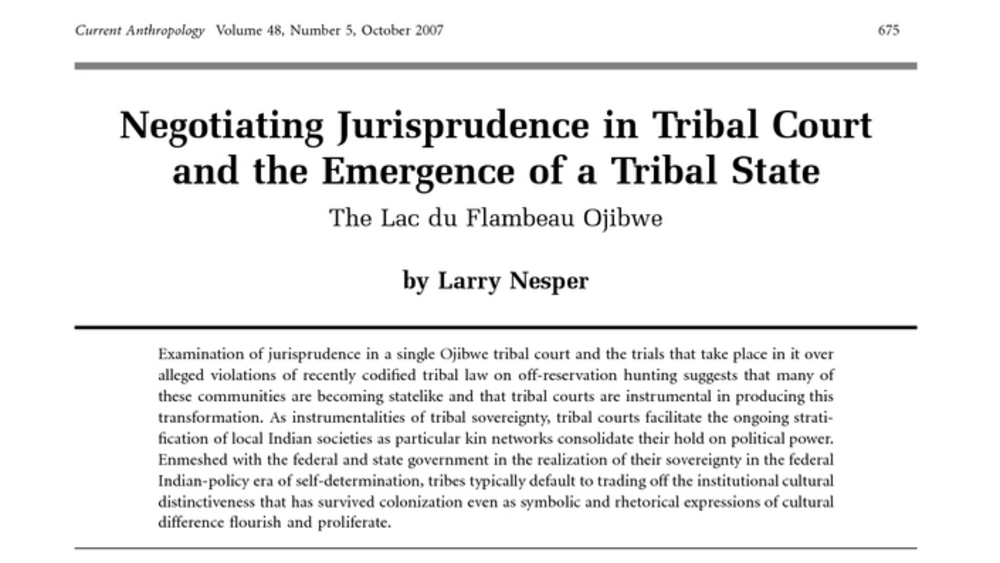
Negotiating Jurisprudence in Tribal Court and the Emergence of a Tribal State: The Lac du Flambeau Ojibwe
The interaction between American Indian activism and changes in federal Indian policy since the 1960s has transformed American Indian tribes from largely powerless and impoverished kinshipâ€based communities into neocolonial statelike entities (Wilkinson 2005).1 Representing themselves as distinct…
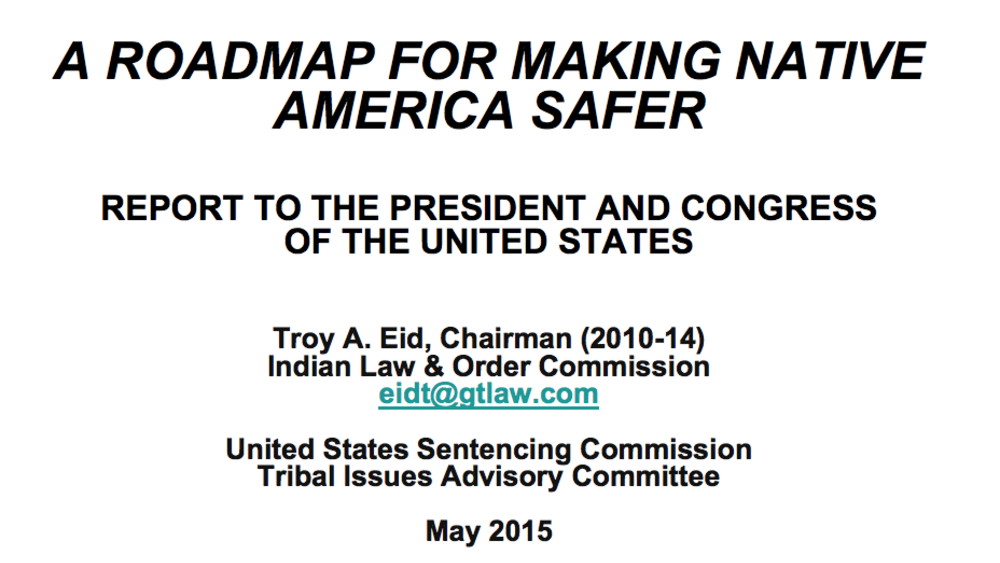
A Roadmap For Making Native America Safer: Report To The President And Congress Of The United States
A Roadmap for Making Native America Safer (Roadmap) provides a path to make Native American and Alaska Native communities safer and more just for all U.S. citizens and to reduce unacceptably high rates of violent crime rates in Indian country. The Roadmap is the culmination of hearings,…
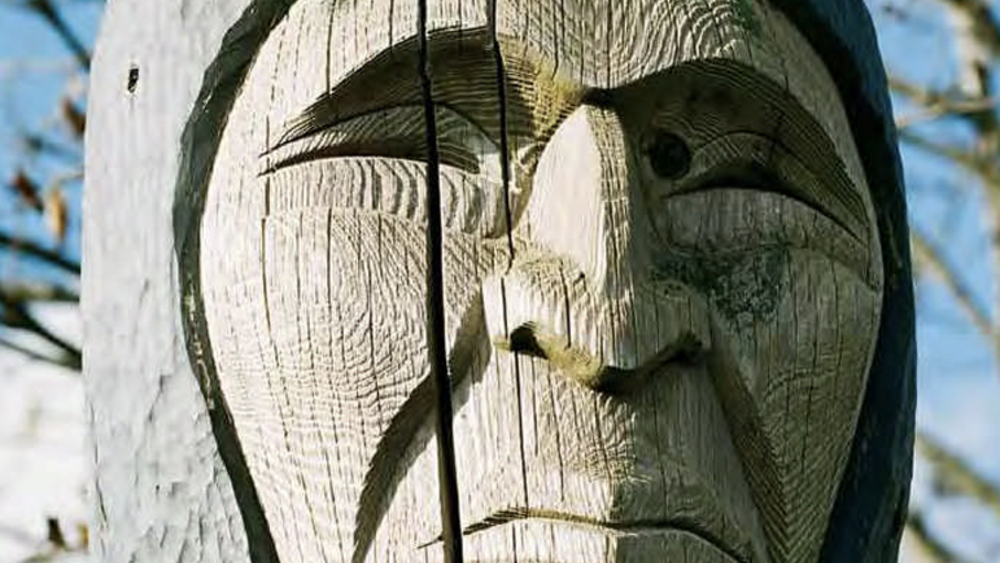
A Guide to Community Engagement
In this third part of the BCAFN Governance Toolkit: A Guide to Nation Building, we explore the complex and often controversial subject of governance reform in our communities and ways to approach community engagement. The Governance Toolkit is intended as a resource for First Nations leadership. It…
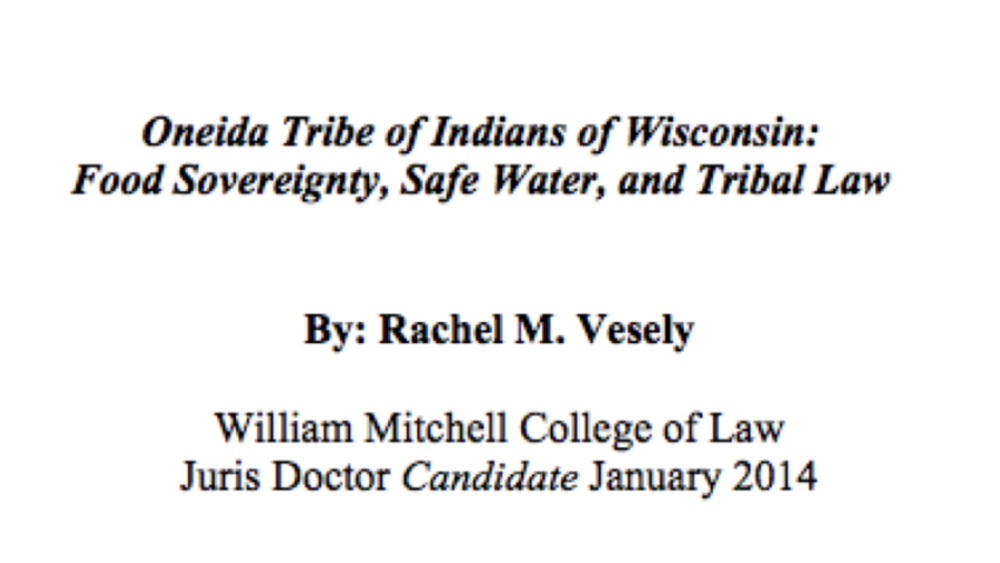
Oneida Tribe of Indians of Wisconsin: Food Sovereignty, Safe Water, and Tribal Law
An example of a Native American community working to achieve food sovereignty not only with physical nutrients but also with social elements is the Oneida Tribe of Indians of Wisconsin. This article analyzes the strengths of the Oneida Tribe's approach to preserving water quality and fishing…
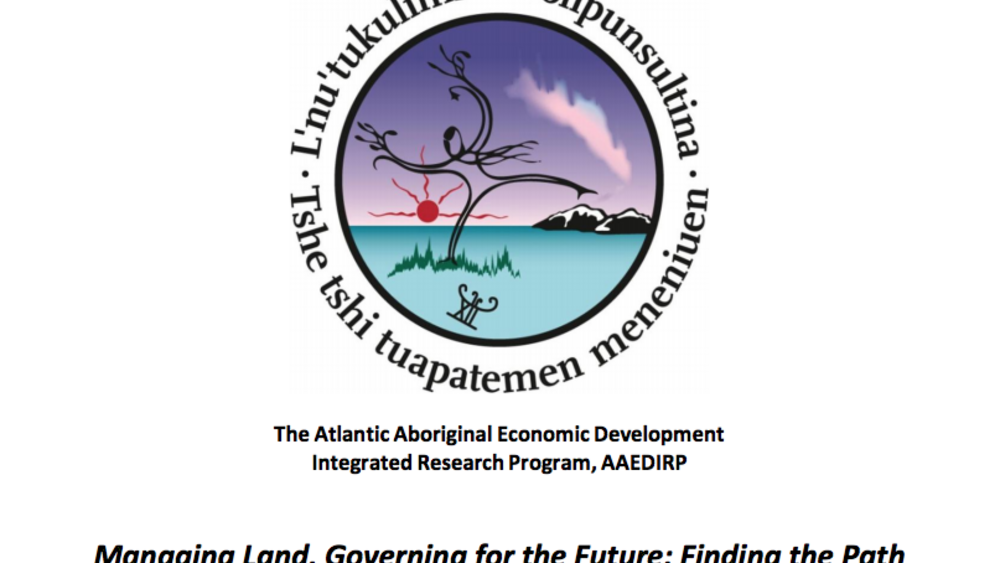
Managing Land, Governing for the Future: Finding the Path Forward for Membertou
This in-depth, interview-based study was commissioned by Membertou Chief and Council and the Membertou Governance Committee, and funded by the Atlantic Aboriginal Economic Development Integrated Research Program to investigate methods by which Membertou First Nation can further increase its…
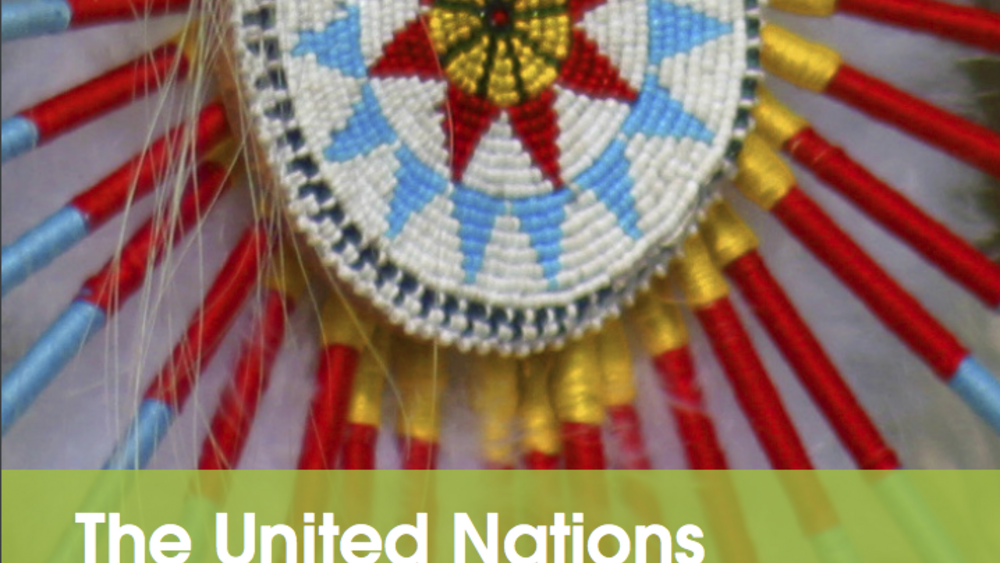
The United Nations Declaration on the Rights of Indigenous Peoples: With an Introduction for Indigenous Leaders in the United States
On September 13, 2007, the United Nations General Assembly adopted the Declaration on the Rights of Indigenous Peoples, affirming that indigenous peoples are equal to all other peoples and have the right to self-determination, along with an array of related rights, including rights to traditional…
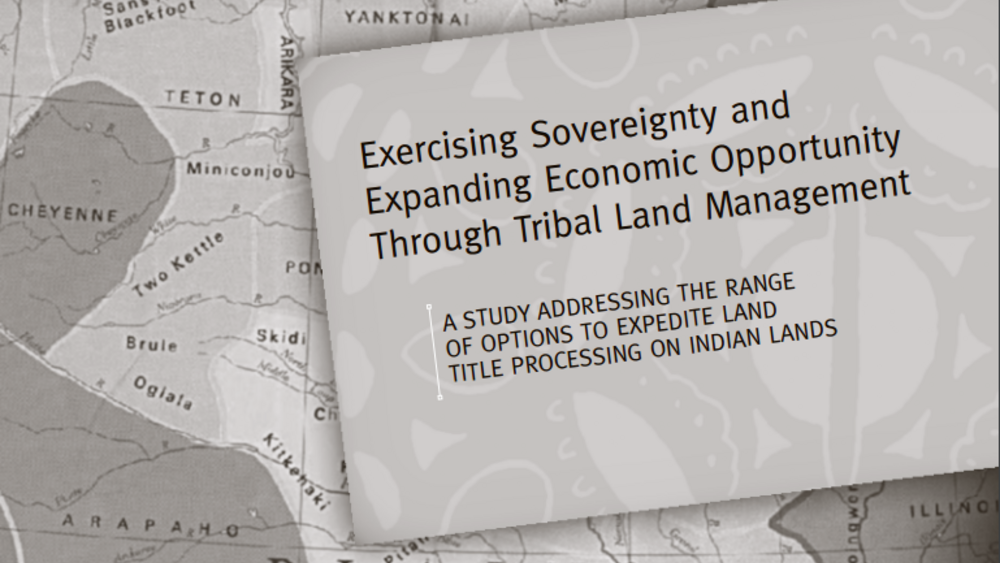
Exercising Sovereignty and Expanding Economic Opportunity Through Tribal Land Management
While the United States faces one of the most significant housing crises in the nation’s history, many forget that Indian housing has been in crisis for generations. This report seeks to take some important steps toward a future where safe, affordable, and decent housing is available to Native…
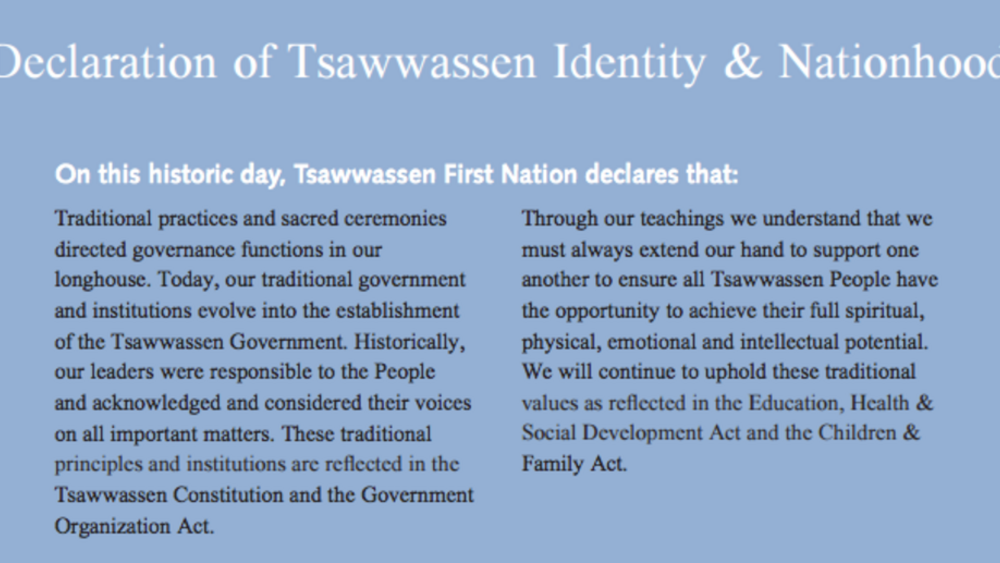
Declaration of Tsawwassen Identity & Nationhood
We are Tsawwassen People "People facing the sea", descendants of our ancestors who exercised sovereign authority over our land for thousands of years. Tsawwassen People were governed under the advice and guidance of leaders, highborn women, headmen, and speakers through countless generations...
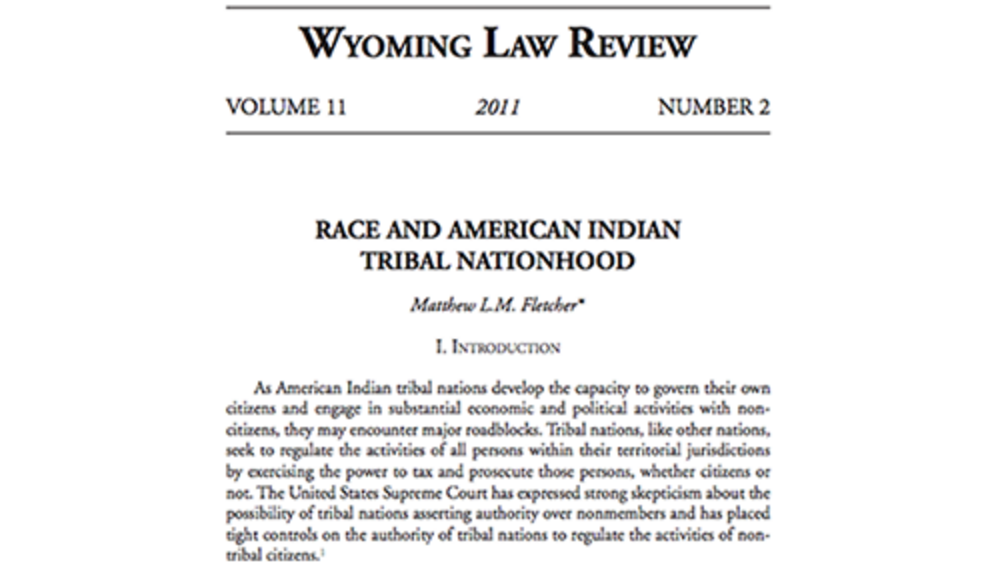
Race and American Indian Tribal Nationhood
This article bridges the gap between the perception and reality of American Indian tribal nation citizenship. The United States and federal Indian law encouraged, and in many instances mandated, Indian nations to adopt race-based tribal citizenship criteria. Even in the rare circumstance where an…
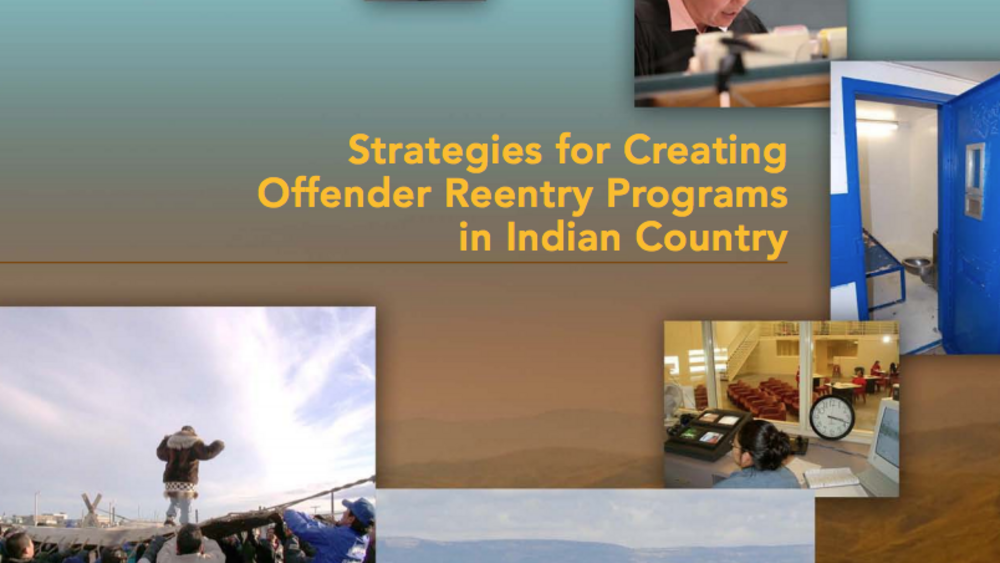
Strategies for Creating Offender Reentry Programs in Indian Country
Weed and Seed, a community-based strategy sponsored by DOJ, is an innovative, comprehensive, multi-agency approach to law enforcement, crime prevention, and community revitalization. The strategy aims to prevent, control, and reduce violent crime, drug abuse, and gang activity in designated high-…
Pagination
- First page
- …
- 10
- 11
- 12
- …
- Last page
